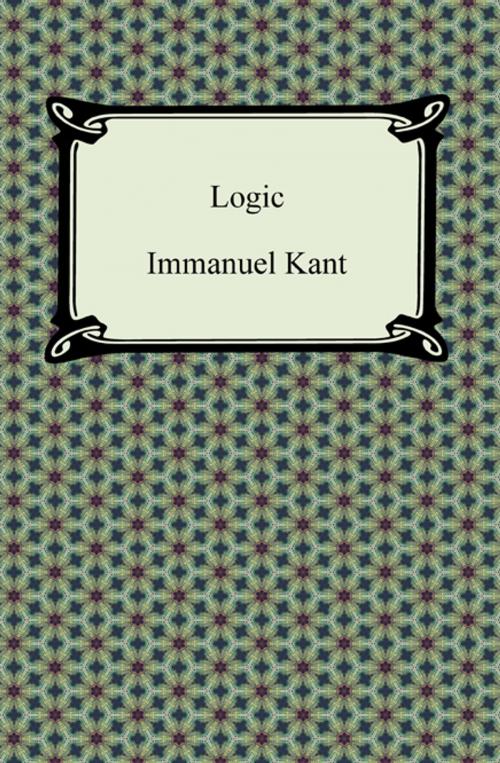| Author: | Immanuel Kant | ISBN: | 9781420946659 |
| Publisher: | Neeland Media LLC | Publication: | December 15, 2009 |
| Imprint: | Digireads.com Publishing | Language: | English |
| Author: | Immanuel Kant |
| ISBN: | 9781420946659 |
| Publisher: | Neeland Media LLC |
| Publication: | December 15, 2009 |
| Imprint: | Digireads.com Publishing |
| Language: | English |
Taken from his lecture notes on his introductory course on logic, Kant's philosophies in "Logic" describe his thoughts on the mental process and how it should be applied in life. Kant never set out to write a book on the subject, but his graduate student Gottlob Jaesche gathered his mentor's lecture notes together and added his own observations and explanations to the preexisting text. Included in the philosophy are historical explanations of Kant's beliefs, which detail how he arrived at his conclusions. While the book contains the highly complex extrapolations that Kant is known for, he explains his wordy tendencies by discussing the limitations of language and how difficult it can be to convey thoughts and ideas logically. However, "Logic" contains moments of true clarity and understanding; he posits that by realizing limitations, thinkers can break barriers and comprehend metaphysical ideas. Kant is best known for his three Critiques: "The Critique of Pure Reason," "The Critique of Practical Reason," and "The Critique of Judgment." In large part due to these works, he is known as one of the most famous and popular thinkers of the late Enlightenment period. He is also famous for bridging the gap between the empiricists and rationalists of the time, and although various philosophers have sought to perfect and expand on his theories, his works are staples in the philosophy discourse.
Taken from his lecture notes on his introductory course on logic, Kant's philosophies in "Logic" describe his thoughts on the mental process and how it should be applied in life. Kant never set out to write a book on the subject, but his graduate student Gottlob Jaesche gathered his mentor's lecture notes together and added his own observations and explanations to the preexisting text. Included in the philosophy are historical explanations of Kant's beliefs, which detail how he arrived at his conclusions. While the book contains the highly complex extrapolations that Kant is known for, he explains his wordy tendencies by discussing the limitations of language and how difficult it can be to convey thoughts and ideas logically. However, "Logic" contains moments of true clarity and understanding; he posits that by realizing limitations, thinkers can break barriers and comprehend metaphysical ideas. Kant is best known for his three Critiques: "The Critique of Pure Reason," "The Critique of Practical Reason," and "The Critique of Judgment." In large part due to these works, he is known as one of the most famous and popular thinkers of the late Enlightenment period. He is also famous for bridging the gap between the empiricists and rationalists of the time, and although various philosophers have sought to perfect and expand on his theories, his works are staples in the philosophy discourse.















